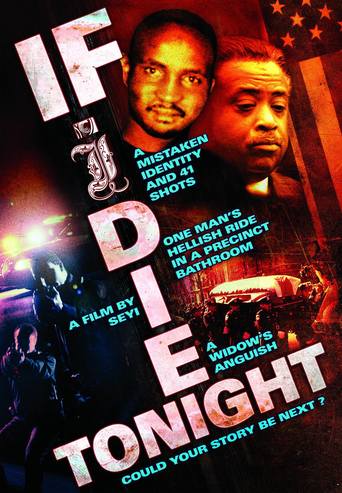madisonburch
Ignorance is NOT bliss. Many negative situations arise from ignorance. This documentary should be watched by all and used as a learning tool to stimulate much needed dialog.Racial profiling is "morally indefensible" and the ongoing problem of police brutality needs to be addressed. We must separate our support of law enforcement as the guardians of safety and order, from the abusers of the system. If we are to have a social justice system that works for all, we must ALL pay attention when it does not work for some, especially those in less empowered segments of society.I become emotional each time I watch this film. It is heart wrenching, thought-provoking; the people real, the stories universal. I may never know what certain types of people in this country go through every day and to be on the other side of the camera to document such accounts is unfathomable to me. But I do know it's been worth my time to watch and learn. It is filled with such personal tragedy and hard-to-face facts. The filmmakers have cleverly portrayed the very difficult issue at hand, empowering the viewer with information and hopes for the future…it appears to be years of hard work in the making resulting in a timeless message.
DeZe
I watched your documentary and was very moved by it (of course I cried most of the way through). A very unique way to present a documentary - without a narrator. Being Australian and living in Australia we don't experience first hand the issues that you portrayed (that's not to say we don't have our own fair share of issues to deal with over here) and so I began watching without prejudice. It was like riding a roller coaster, and at first I sympathised with the victims and felt angry with the law enforcers, then my sympathy went to the law enforcers and their families, etc, and then I was left with such a heavy heart because all were suffering. It must have been a very difficult task to present the issue without favouritism, and most of all without being able to formulate a solid or "neat" conclusion. My son began watching it with me but had to race off to work half way through. Later he asked me, "how did it finish", all I could say was "it didn't finish". Hopefully one day you can create a documentary in which you will be able to present the solution. It seems there is still a lot of racial tension over there which adds another element to law enforcement. I think this tension causes people to react to situations in questionable manners and once fear is added to the equation and adrenalin sets in the unimaginable and unthinkable occurs. God help us.I look forward to seeing more of your creations, I think the world needs such wake up calls.
rddj05
I originally saw "If I Die Tonight" about a year ago at a screening in New York (and recently on DVD). Aside from the provocative title, I was intrigued by the subject matter. What immediately struck me about the film is that it takes the perspective from both sides of the issue of police brutality in America. In-depth interviews with police officers are set along side the heartbreaking accounts from families who have lost loved ones in tragic encounters with the police in their own communities.Though a few of the well-known cases are covered, like the now infamous Amadou Diallo case, the film also details some lesser known cases that are just as shocking. Overall, however, the film delves into the larger issue at hand; why is there such a misunderstanding between the two sides? The film highlights the fact that there is a basic breakdown in communication between the citizens of these poor and lower-middle class communities and the police who patrol them. It details the pressures and responsibilities that police officers feel, as well as takes an in-depth look into how citizens view the police. The police are an integral part of any community, but somehow, in far too many of these communities, the connection has be lost. I couldn't help but see the parallels between soldiers who've fought in wars and spoken about how they become so full of fear that they eventually start viewing everyone as a possible enemy.To some, police officers are unquestionable heroes who face an incredibly difficult job on a daily basis. To others, they are over-aggressive individuals with extreme power who enter a community without any desire to understand the people they are policing. In the end, police officers aren't that much different than the rest of us; yes, many genuinely want to be of aid and service to their communities, but most do what they do for many different reasons: they enjoy the job, they are good at it, and it provides a paycheck and a pension. Despite the risks, there has never been a shortage of people wanting to be police officers (as thousands of applicants each year can attest to.)What I found fascinating was the footage of people on the extremes who seemed to be baffled why the other side felt the way they do, contrasted with more moderate voices who were trying to explain those feelings. Unfortunately, we now live in a society where the screaming voices get the most coverage on the cable news programs, and it has become far too easy to vilify and demonize anyone with an opposing point of view. Fortunately, there are a few instances of real communication between the police in the citizens in the film, which can give us hope for the future. The solution appears to be that an more open- discussions should be taking place between the two sides all over America, and unfortunately, it is not. This film may be a good place to start.
